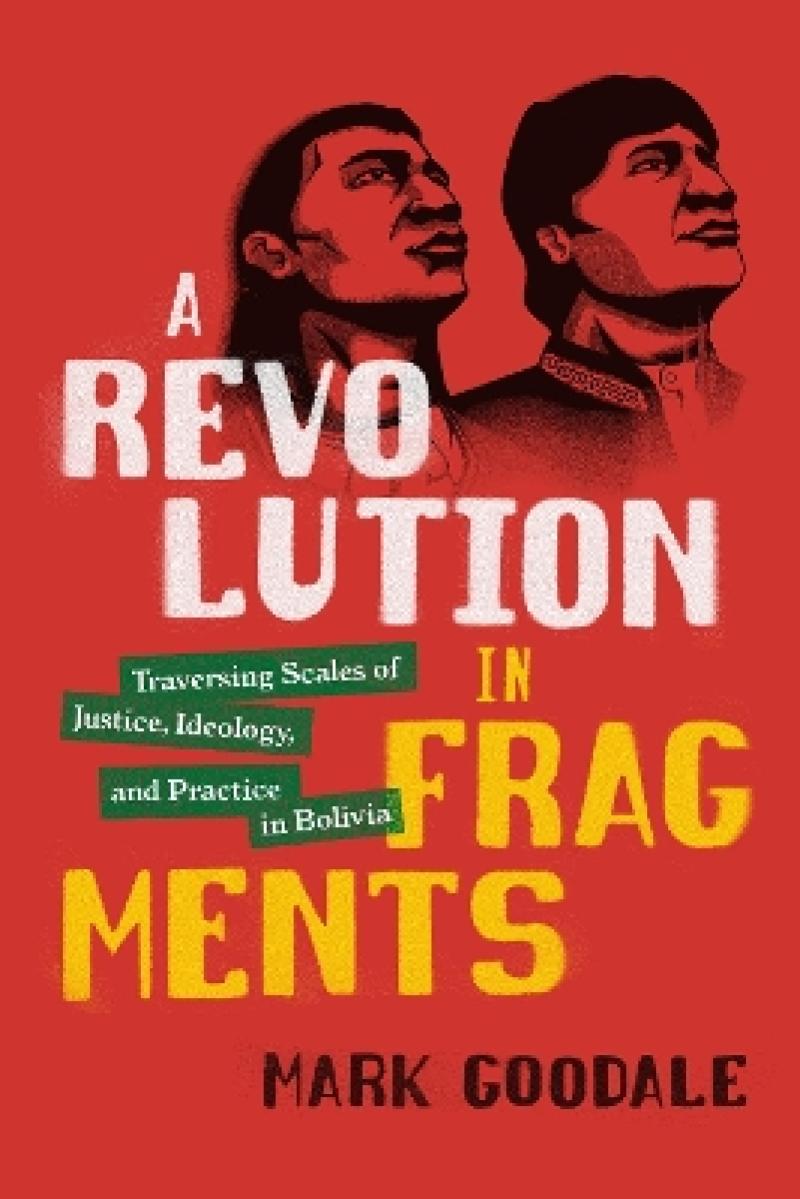“This major piece of scholarship on contemporary Bolivia offers profound theoretical insights and contributions. I have no doubt that this fabulous book will become an authoritative text.”
- Andrew Canessa, author of, Intimate Indigeneities: Race, Sex, and History in the Small Spaces of Andean Life
“Revolutionary change has proven profoundly difficult for anthropologists to handle, both in theoretical and descriptive terms. Against this background, <i>A Revolution in Fragments</i> is a triumph. Both a compelling theoretical account of the nature of ‘revolution by constitution’ and a gripping ethnography of the revolutionary process as it unfolded over more than a decade in Bolivia, this is a book no one interested in the nature and potential of radical social transformation should miss.”
- Joel Robbins, University of Cambridge,
<p>“The rich ethnographic and historical detail that Goodale provides makes <i>A Revolution in Fragments</i> a thoroughly engaging and illuminating read…. Goodale captures the complexity and political multiplicity that comes to the fore during times of revolution and produces an original and thoughtful account of the Morales years, a welcome addition to the growing literature on Bolivia in general.”</p>
- Angus McNelly, Bulletin of Latin American Research
"Recommended. Graduate students and faculty."
- S. L. Rozman, Choice
“<i>A Revolution in Fragments </i>... is distinctive in its breadth.... This book should be one of the first to turn to for anyone wishing to better understand ... the nature of Bolivian politics during the era of Evo Morales.”
- Jonathan Alderman, Journal of Latin American Studies
“Covering the period 2006-2015, [<i>A Revolution in Fragments</i>] aims to portray and comprehend the Bolivian ‘process of change’ as it unfolds before Goodale’s eyes.... [The book] lays bare the absurdity of reductionist approaches as well as the insatiable political craving for heroes and antiheroes. And yet Goodale’s book makes the point compellingly, almost effortlessly, as if it were merely the channel through which we hear the voices of the revolution.”
- Soledad Valdivia Rivera, European Review of Latin American and Caribbean Studies
“Goodale’s analysis spans geographic as well as ideological distances, challenging scholars to think through the various texts and subtexts brought forth in the MAS’s state- and nation-building process.... Goodale’s theoretical scaffolding and his broad evidentiary base make <i>A Revolution in Fragments</i> required reading for scholars of race, class, and gender across the Global South."
- Luis M. Sierra, Journal of Global South Studies
“Goodale’s thoughtful work reveals several tensions that defined Bolivia’s revolutionary project.... This book’s empirical and analytical richness makes transparent an important moment in global history and provides the necessary insight so we can begin to understand that moment’s end.”
- Marygold Walsh-Dilley, Journal of Anthropological Research
“<i>A Revolution in Fragments</i> offers a rich and detailed political and legal history of revolution by constitution, and the juridification of a pro-indigenous reform agenda through creative practices of legal reasoning and bureaucratic refashioning.... Beyond this institutional history, however, the book also offers a touching portrait of the ethical uncertainties of juridification as a technology for political change.”
- Mareike Winchell, Anthropological Quarterly
“Goodale illustrates his dense and enriching theoretical contributions with a delicate combination of a contemplation of the historical, political, economic and ideological context of the South American country, and the ethnographic immediacy with which he observes and interprets his interlocutors.” (Translated from Spanish)
- Maximilian Görgens, Iberoamericana
“<i>A Revolution in Fragments</i> will be of interest to readers interested in recent and longer histories of left governments, left and indigenous social movements, and right-wing organizing in Latin America. It is a beautifully written and moving account of a tumultuous period essential for understanding the achievements, limits, and contradictions of Bolivia’s <i>proceso de cambio</i>.”
- Sarah Hines, The Latin Americanist
Introduction. Meaning and Crisis in Cosmic Time 1
1. Hearing Revolution in a Minor Key 33
2. Legal Cosmovisions 64
3. Opposition as a Cultural System: Myth, Embodiment, Violence 95
4. A Revolution without Revolutionaries: El proceso de cambio in a Trotskyized Country 134
5. The Unstable Assemblage of Law 166
6. And the Pututu Shall Sound 200
Conclusion. The Politics of Forever 234
Notes 249
References 265
Index 283
